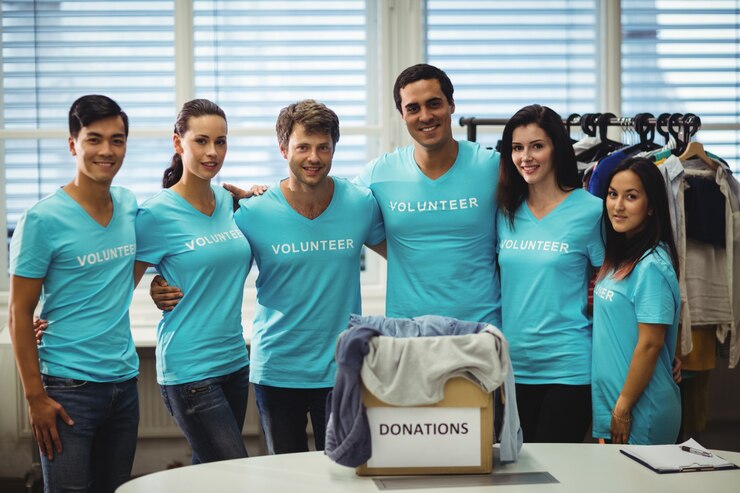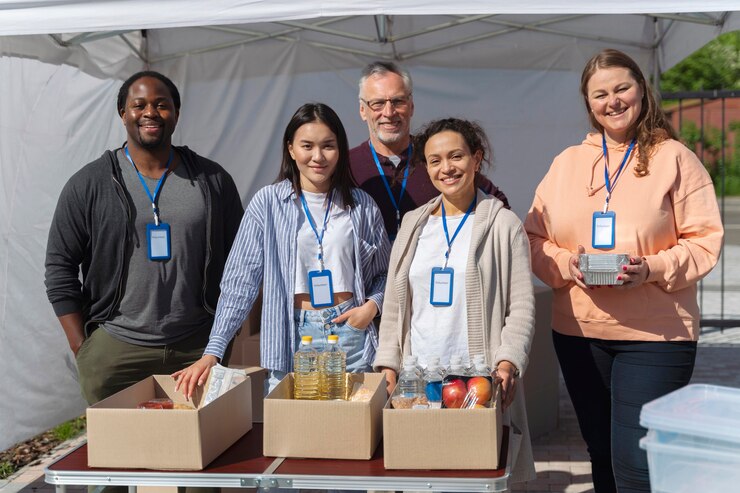women empower through microsoft project for nonprofits
women empower through microsoft project for nonprofits
Submit your Nominations for Country Director on info@aiuno.org
Empowering women through Microsoft Project for Nonprofits involves leveraging Microsoft’s resources, technology, and support to advance gender equality, enhance opportunities, and promote women’s leadership and participation in various initiatives. Here are some ways in which nonprofit organizations can work towards empowering women through this program:
- Digital Literacy Programs:
- Offer digital literacy training and education to women and girls, enabling them to acquire essential technology skills and access online resources for education and economic empowerment.
- Skills Development and Training:
- Develop training programs that focus on in-demand skills, such as coding, software development, or data analysis, to prepare women for careers in technology-related fields.
- Access to Software and Tools:
- Provide women-led organizations and female entrepreneurs with access to Microsoft’s software and cloud services, enabling them to enhance productivity and innovation in their projects and businesses.
- Mentorship and Networking:
- Establish mentorship programs and networks that connect women with experienced professionals who can guide their personal and professional growth.
- Business Support:
- Support women-owned businesses and startups by providing resources, such as business planning tools, cloud infrastructure, and marketing support through Microsoft’s offerings.
- STEM Education Initiatives:
- Promote women’s participation in science, technology, engineering, and mathematics (STEM) fields through educational programs, scholarships, and STEM-related events.
- Empowerment Apps and Platforms:
- Develop or support the creation of apps and platforms that empower women with information, resources, and networking opportunities, especially in areas like health, finance, and education.
- Gender Data Analysis:
- Use Microsoft’s data analytics tools to conduct gender-disaggregated data analysis to identify gender-based disparities and inform evidence-based policies and programs.
- Online Safety and Cybersecurity Training:
- Educate women and girls about online safety and cybersecurity, helping them stay secure while using digital resources and social media.
- Collaboration and Advocacy:
- Collaborate with other women-focused nonprofits, government agencies, and corporate partners to advocate for gender equality, raise awareness of women’s issues, and influence policy change.
- Leadership and Representation:
- Encourage and support women’s active participation in leadership roles within nonprofit organizations, businesses, and the technology industry.
- Community Engagement and Inclusion:
- Engage with local communities to ensure that the voices and needs of women are heard and included in decision-making processes.
- Awareness Campaigns:
- Use Microsoft’s communication and marketing tools to create awareness campaigns that challenge stereotypes, promote gender diversity, and encourage women and girls to pursue their goals.
- Measurement and Evaluation:
- Implement measurement and evaluation systems to track the impact of programs on women’s empowerment and adjust strategies as needed.
By leveraging Microsoft Project for Nonprofits, nonprofit organizations can harness the power of technology and resources to advance gender equality, foster women’s economic empowerment, and promote leadership opportunities for women and girls. These initiatives can help create a more inclusive and equitable society.
Climate solutions accelerator program
American jewish world services
Women’s peace and humanitarian fund
Business plan tools for startups
Internally displaced persons ukraine









